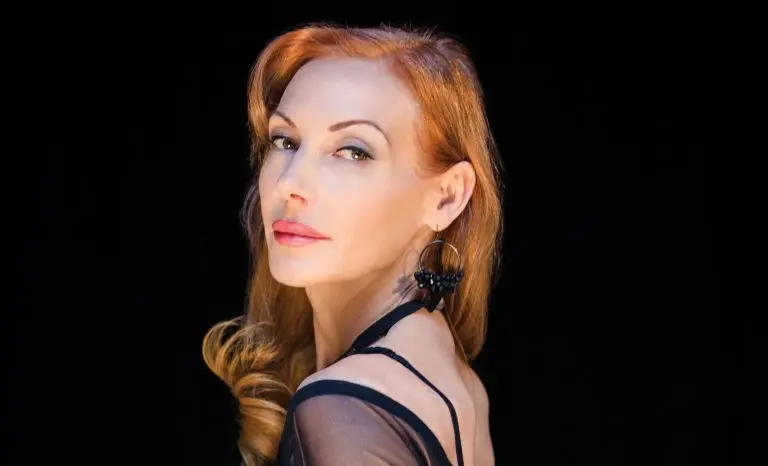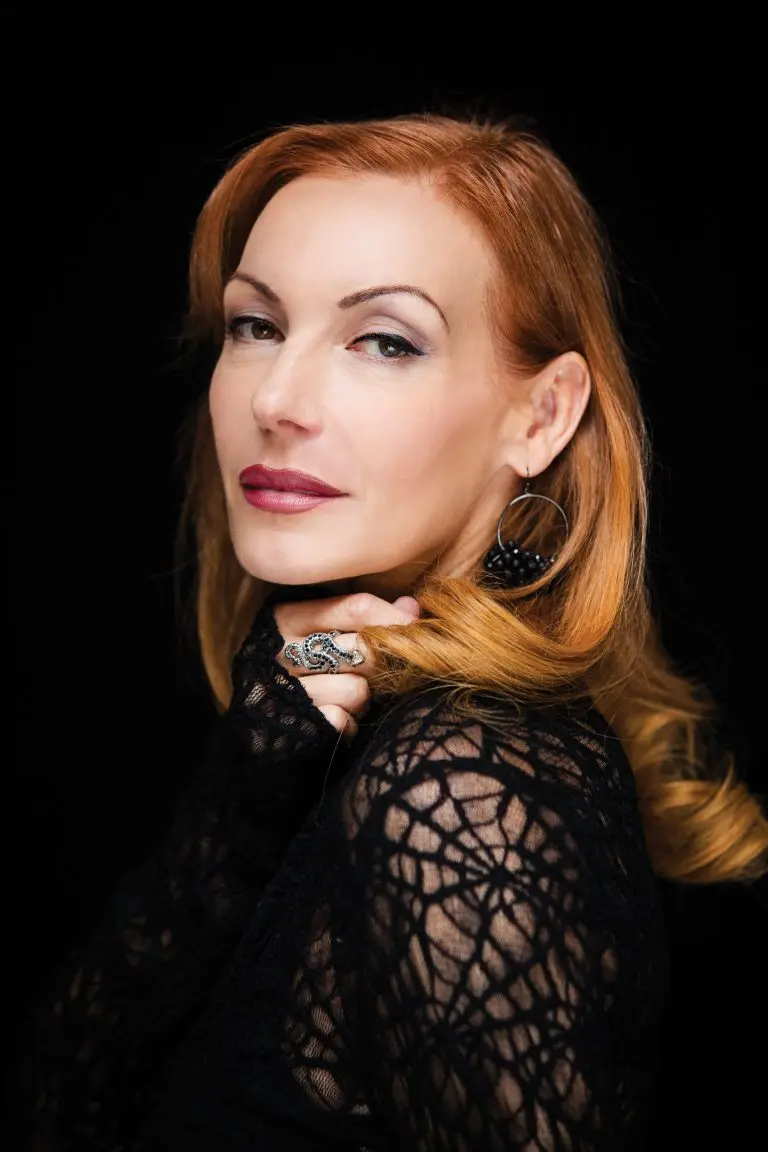Ute Lemper brings Last Tango in Berlin to the Vancouver Opera Festival

One of the special events at this year’s inaugural Vancouver Opera Festival is a performance by Ute Lemper.
The 53-year-old singer, who lives in New York with her family, will perform her show Last Tango in Berlin May 4 at the Orpheum Theatre. With a bar stool, microphone, and trio (piano, bandonen, and bass), the multilingual song stylist delves into cabaret ballads by Kurt Weill and Bertolt Brecht, chansons by Jacques Brel and Edith Piaf, tangos by Argentine composer Astor Piazzolla, and other songs cherry-picked from her other current repertoires.
Reviewing the show in the New York Times, Stephen Holden described a 2013 performance as “a stream of consciousness in several languages, mostly German, French and English, in which Ms. Lemper interweaves songs, song fragments, personal reminiscences and social commentary into an impressionistic historical tapestry. Wearing a gleaming black cocktail dress, her eyes narrowed to slits, her sleek blonde head thrown back, she embodies the Marlene Dietrich archetype of a forbidding continental temptress who has seen it all.”
Here’s a partial transcription of our interview with the divine Ms. L.
Inside Vancouver: This programme includes some South American music, as well as French and German music, is that right?
Ute Lemper: I used to sing the entire songbook of (Argentine composer) Astor Piazzolla, but I do less and less now. This show is one that evolves constantly through the repertoires that I’m exploring. Four years ago this show had a lot more Argentinean tango in it, and also the Berlin connection of course. But I do more and more things that are my newest discoveries and revelations. It’s never the same, it’s sometimes almost all French, sometimes almost all German. At the moment I explore the music that was written in the Jewish ghettoes between 1942 and 1944, and some of the music that was written in the concentration camps, all in Yiddish. I do a whole conceptual evening called Songs for Eternity. But I like to add a bunch of these songs into the program. I find it so haunting in the way that this music has so much integrity and authenticity and is so heartbreaking.
IV: Are the songs presented in any kind of chronological or dramatic order?
UL: I try always to preserve a dramatic line. It’s cohesive in a story-line but not always in a time-line, because it’s interesting to go backwards instead of forwards sometimes. But it definitely has a dramatic outline. Sometimes in the context, songs fit in. For instance, Léo Ferré’s “Avec le temps” is one of my favourite songs. It’s incredibly sensitive to time, and the idea of perpetual change. It reflects journeys of immigration, of cities, like Berlin, a city with so many chapters, through the periods of the war and the Cold War and the reunification.

IV: Is part of the motivation for Last Tango in Berlin the preservation of music styles that are going out of fashion? Do you see yourself as a musical historian and preservationist?
UL: I like to experience this kind of moment onstage that tells the story of life — naked, truthful, not romantic, operatic music that’s straight from the gut, straight from the soul, that tells the story about life, that everyone in the audience shares with me. Sometimes it is so direct and so real, it can also be so cruel and so truthful and beautiful. That to me is the most essential thing as a performer onstage. This repertoire allows me to share that kind of moment with the audience. Some other song repertoires don’t allow that.
And yes, I do love to describe the historical context, especially the German repertoire. Because it’s my country, and the history of my country is so complicated and horrifying. It’s an important thing for me to keep the dialogue of the past alive, to move back into the past. Because those questions can never be answered, what happened in Germany, how this nation of sophisticated culture and philosophy could have been manipulated and followed a false prophet to commit these horrifying crimes and have so much bloodshed on their hands.
I will never get the answers. And I will always be the one who is the accuser, the prosecutor, the one painfully struck by this history. I like to be a historian, but I do like the straightforward, crude moment of truth onstage. And this repertoire allows this.
And this is a chapter of repertoire that does not really exist anymore, and certainly not in the world of pop music, where everything is very much glamoured-up and cleaned-up and perfection-ized. But it exists still onstage, in the performance of a human being. And I like to go there.
Doors for Ute Lemper at the Orpheum Theatre (601 Smithe St.) are at 7. Tickets start at $50 and can be purchased at vancouveropera.ca.

Craving
culture?
Get
ideas.